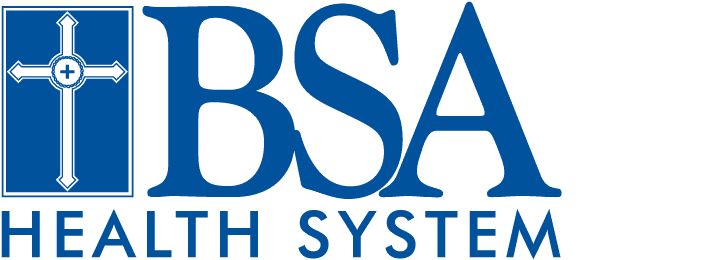Vaccine and Treatments
Pfizer-BioNTech EUAs/Comirnaty Approval Vaccine Information
Johnson & Johnson (Janssen) Vaccine Information
Drug Therapies
Vaccine Record & Test Results
Sign in to MyChart for quick access to your COVID-19 vaccine record and test results.
What Do I Do If I Feel Sick?
Unless it is an emergency, stay home if you feel sick, even if your symptoms are mild. To reduce your risk of catching or spreading illness, do not go to work, school or public places, and avoid public transportation if possible.
If you feel like you need medical care, you are encouraged to call before you go to a doctor’s office or urgent care center and describe your symptoms over the phone.
Answer questions to determine your risk.
When you call a healthcare provider, you will be asked about your risks for COVID-19.
You may be asked:
- Have you had close contact with someone diagnosed with COVID-19, the disease caused by the new coronavirus? (Close contact means having been within 6 feet of that person for an extended time, or being exposed to their cough or sneeze.)
- Do you have a fever, a cough or difficulty breathing?
- Has a public health officer said you were potentially exposed to COVID-19?
Practice hand hygiene and respiratory etiquette.
Masks are recommended for everyone in a public setting.
Wash your hands thoroughly and frequently for at least 20 seconds with soap and hot water. Be mindful to wash your hands after sneezing, blowing your nose, coughing or using the bathroom, and before preparing or eating food.
- If you cough or sneeze, do so into the bend of your elbow, not your hand, or use a tissue, and then immediately throw it away.
- At home and work, clean often-touched surfaces such as doors and doorknobs, cabinet handles, bathroom hardware, tabletops, phones, tablets and keyboards regularly with disinfectant.
About COVID-19
Symptoms
- Fever, cough, body aches, muscle pain, fatigue, chills, repeated shaking with chills, headache, sore throat, new loss of taste or smell; sometimes vomiting and diarrhea
- Can be mild or severe
- Can result in pneumonia
Transmission
- COVID-19 might be spread through the airborne route, meaning that tiny droplets remaining in the air could cause disease in others, even after the ill person is no longer near.
Prevention
COVID-19 may be prevented by frequent, thorough hand washing, coughing into a tissue or the crook of your elbow, staying home when sick and limiting contact with people who are infected.
Cause
COVID-19 is caused by the novel 2019 coronavirus is now called severe acute respiratory syndrome coronavirus 2, or SARS-CoV-2.
COVID-19: Myths versus Facts
A vaccine to cure COVID-19 is available.
Answer: FALSE.
Currently there is no vaccine for the new coronavirus. Scientists have begun working on one, but developing a vaccine that is safe and effective may take months.
You can protect yourself from COVID-19 by taking acetic acid or steroids, or using essential oils, salt water, ethanol or other substances.
Answer: FALSE.
None of these recommendations protect you from getting COVID-19, and these practices may be dangerous. The best ways to protect yourself from this coronavirus, and other viruses, include:
- Avoiding close contact with people who are sick, sneezing or coughing.
- Practicing hand hygiene and respiratory etiquette:
- Wash your hands thoroughly and frequently for at least 20 seconds with soap and hot water. Be mindful to wash your hands after sneezing, blowing your nose, coughing or using the bathroom, and before preparing or eating food.
- If you cough or sneeze, do so into the bend of your elbow, not your hand, or use a tissue, and then immediately throw it away.
- At home and work, clean often-touched surfaces such as doors and doorknobs, cabinet handles, bathroom hardware, tabletops, phones, tablets and keyboards regularly with disinfectant. For a list of EPA-approved disinfectants, visit: https://www.epa.gov/pesticide-registration/list-n-disinfectants-use-against-sars-cov-2
How Our Hospital Is Preparing
We are committed to treating every patient who needs medical care. Our expert, well-trained clinicians regularly care for patients with severe respiratory illnesses and other infectious diseases. Our providers and staff follow best practices, using recommended tools and techniques to protect themselves, including the use of personal protective equipment (PPE).
We are closely monitoring updates from the World Health Organization (WHO), the infection rate from the Centers for Disease Control and Prevention (CDC), and other tracking tools.
We will rely on our emergency management plan and practices to care for suspected and confirmed cases of COVID-19.
Family members and friends are encouraged to communicate with patients via FaceTime, phone calls and text messages.
We are also screening employees who have symptoms.
Additionally, BSA community events and classes are postponed until further notice.
How the Hospital Cares for a Patient with a Confirmed Diagnosis of COVID-19
The materials used to care for infected patients are isolated and handled using the most current infection-control practices.
For the safety of all, our environmental care staff uses evidence-based disinfection procedures and products. We are confident patients entering our facility for inpatient or outpatient care are safe.
We understand the public’s high level of concern and are committed to protecting our patients’ privacy.
What is COVID-19
COVID-19 is a type of coronavirus. It was first discovered in 2019 in Wuhan, China.
Symptoms include cough, fever and shortness of breath. COVID-19 can be severe and some cases have caused death. COVID-19 can be spread from person to person. It is diagnosed with a laboratory test.
There is no vaccine for coronavirus. Prevention involves frequent hand-washing with soap and water, coughing into a tissue (throw away immediately) or the bend of your elbow and staying home when you are sick.
